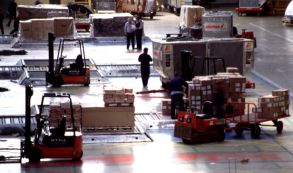The new alliance is designed to eliminate unnecessary administrative procedures and costs as well as free up valuable resources to tackle the complex challenges that today"™s global trade presents.
Over the past several decades freight forwarders working within The International Air Transport Association (IATA), have been known as "agents," working on behalf of air carriers to book freight for logistics and supply chain managers worldwide.
But that relationship has "evolved," says IATA, which recently announced that it would implement a new agreement with International Federation of Freight Forwarders Associations (FIATA) to replace the program with a new alliance.
The IATA-FIATA Air Cargo Program (IFACP) moves decision-making on the rules governing the airline-forwarder relationship away from an airline-led conference to a governance body jointly managed by forwarders and airlines.
According to Tony Tyler, IATA"™s Director General and CEO, the move reflects today"™s market conditions.
"This is the result of four years of hard work to modernize the relationship between freight forwarders and airlines," he says.
The IFACP also provides a framework to ensure that industry standards are relevant, pragmatic and fit for purpose, add spokesmen.
"These standards cover the endorsement of freight forwarders and more broadly the safe, secure and efficient transportation of air cargo shipments," says Aleks Popovich, IATA, Senior Vice President, Financial and Distribution Services.
According to Rudi Sagel, Chairman of FIATA"™s Airfreight Institute (AFI), the IFACP will eliminate unnecessary administrative procedures and costs as well as free up valuable resources to tackle the complex challenges that today"™s global trade presents…



